第23章 THE QUEEN'S NECKLACE.(4)
"What have you done with them? Answer me, I command you."
"Sire," said the cardinal, after a pause, "I supposed that they were given to the queen."
"Who intrusted you with this commission?"
"Sire, a lady named Countess Lamotte-Valois. She gave me a letter from her majesty, and I believed that I should be doing the queen a favor if I should undertake the care of the commission which the queen had the grace to intrust to me."
"I!" cried the queen, with an expression of intense scorn, "should I intrust you with a commission in my behalf? I, who for eight years have never deigned to bestow a word upon you? And I should employ such a person as you, a beggar of places?"
"I see plainly," cried the cardinal, "I see plainly that some one has deceived you grievously about me. I will pay for the necklace.
The earnest wish to please your majesty has blinded your eyes regarding me. I have planned no deception, and am now bitterly undeceived. But I will pay for the necklace."
"And you suppose that that ends all!" said the queen, with a burst of anger. "You think that, with a pitiful paying for the brilliants, you can atone for the disgrace which you have brought upon your queen? No, no, sir; I desire a rigid investigation. I insist upon it that all who have taken part in this ignominious deception be brought to a relentless investigation. Give me the proofs that you have been deceived, and that you are not much rather the deceiver."
"Ah, madame," cried the cardinal, with a look at once so full of reproach and confidence, that the queen fairly shook with anger.
"Here are the proofs of my innocence," continued he, drawing a small portfolio from his pocket, and taking from it a folded paper. "There is the letter of the queen to the Countess Lamotte, in which her majesty empowered me to purchase the diamonds."
The king took the paper, looked over it hastily, read the signature, and gave it, with a suspicious shrug of the shoulders, to his wife.
The queen seized the letter with the wild fury of a tigress, which has at last found its prey, and with breathless haste ran over the paper. Then she broke out into loud, scornful laughter, and, pointing to the letter, she looked at the cardinal with glances of flame.
"That is not my handwriting, that is not my signature!" cried she, furiously. "How are you--sir, a prince and grand almoner of France--how are you so ignorant, so foolish, as to believe that I could subscribe myself 'Marie Antoinette of France?' Everybody knows that queens write only their baptismal names as signatures, and you alone have not known that?"
"I see into it," muttered the cardinal, pale under the look of the queen, and so weak that he had to rest upon the table for support, "I see into it; I have been dreadfully deceived."
The king took a paper from his table and gave it to the cardinal.
"Do you confess that you wrote this letter to Bohmer, in which you send him thirty thousand francs in behalf of the queen, in part payment for the necklace?"
"Yes, sire, I confess it," answered the cardinal, with a low voice, which seemed to contradict what he uttered.
"He confesses it," cried the queen, gnashing her teeth, and making up her little hand into a clinched fist. "He has held me fit for such infamy--me, his queen!"
"You assert that you bought the jewels for the queen. Did you deliver them in person?"
"No, sire, the Countess Lamotte did that."
"In your name, cardinal?"
"Yes, in my name, sire, and she gave at the same time a receipt to the queen for one hundred and fifty thousand francs, which I lent the queen toward the purchase."